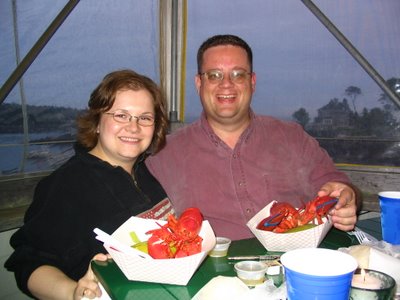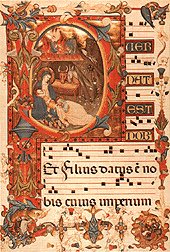
Today is the feast of the Dedication of the Lateran Basilica in Rome.
The Basilica of St. John Lateran is the Cathedral Church of the Bishop of Rome – who also goes by the title “Pope.”
(this is the facade of San Giovanni in Laterano)Most people [incorrectly] assume that St. Peter’s Basilica is the Cathedral of Rome, but it isn’t, and never has been, by the way.
The Cathedral of the Pope is St. John Lateran, which is located in south-central Rome. Vatican City (which is an entirely different
country altogether) is located northwest of Rome. The pope lives in Vatican City, but there are several properties throughout the city of Rome that belong to the Vatican, including the Lateran Palace – which is where the popes
used to live a long time ago.

(this is a photo of the doors that you enter the basilica through - yes they really are THAT big!)The church of a bishop is the church where the
cathedra (chair) is located. In fact, when we speak about papal infallibility, we sometimes use the term "from the chair," meaning that when the Pope speaks infallibly he does it from the "chair of Peter," that is, as the
universal pastor of the entire Church.
In every diocese in the world the cathedral is simply the church that contains the bishop's chair - a sign of his authority and of his apostolic succession represented by the chair. Just as the Bishop of Rome is the successor of Peter, every bishop is the successor of the Apostles.
And the Chair of the Pope is located here at St. John's shown here.
(sorry about the fuzziness of this photo)
All of these photographs are from a pilgrimage I made to Italy in March of this year. A group of seven of us from Omaha joined about twenty others on a tour that included Venice, Florence and Rome. Our smaller group took several side trips to Assisi, Siena, and San Gimignano. We were in Rome ten days before JPII passed away (in fact, we did not get to attend an audience with him, because he was still in the hospital).
So the universal Church celebrates the dedication of the
universal cathedral on this day. If you ever get a chance to see this beautiful church, be sure and include a tour of the baptistery (a separate building) where the pope would baptize new Catholics on the Easter Vigil.

(In this photo notice the Easter Candle next to the font, and the sculpture of a deer drinking from a stream "like a deer that longs for running water, so my soul longs for you, O God" - Psalm 42:1)















